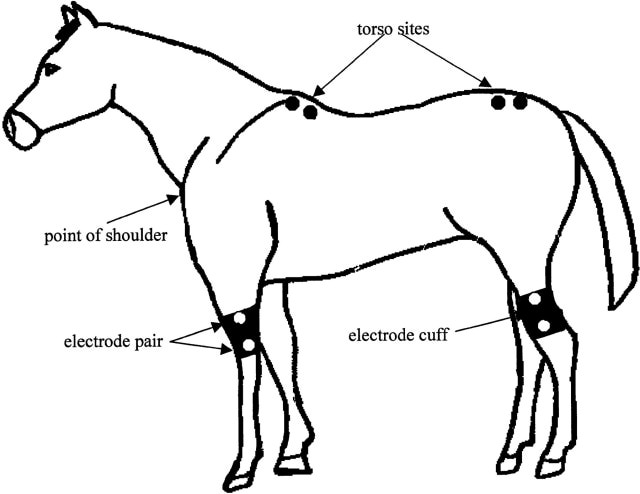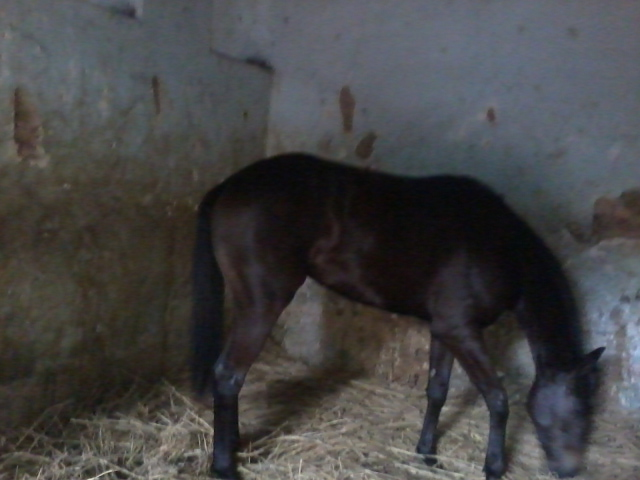QuestionHi Corlena,
Thank you for your response to my last question about pasturing after two years on dry lot. Wasn't thinking and forgot to ask a most important question, three of the four horses were rescues from two years ago, I have no history of them before we got them, with us they have gained their weight back and are otherwise healthy horses. No problems with any of them thus far, so with this being March and here in Tennessee we have had a fair amount of rain the sugars in the grass, will this cause my horses to founder if I did as you suggested and start them slowly at first. Everyone keeps telling me if I put them out to pasture they will founder sure as the sun rises and sets, now I am scared to death to give them this pasture and we are moving in two days. I feed a low starch grain and bermuda hay. My Quarter horse is 15.1 hands and 1038lbs and gets 9 lbs of grain. My Arabian is 14.2 and 850 gets 9 lbs low starch grain. The pony is 12 hands 680 lbs and gets 6 lbs, how far should I cut their grain, I love these guys and want only the best and I am now completely paranoid about foundering and laminitis. Would, as always appriciate your thoughts and wisdom on this matter :).
Thanks Corlena
AnswerHi BJ,
Thank you for your question. Laminitis and founder are certainly scarey and I understand your concern. It is true that sugar-rich grasses MAY trigger founder in some horses, especially those with a history of founder. However, sugar rich grass is not yet to be found to cause founder (cause and trigger are 2 very different things) and some horses can live endlessly on lush pasture without ever missing a step...so to speak. If your horse's don't have laminitis, there is a very limited chance that they will founder on grass regardless of them being rescued horses or not. I realize you don't know your horses' histories but your farrier would have uncovered any laminitis issues over the few years that you have owned them.
Since the pasture you are putting your horses on is very lush, you may want to stretch out the time you take to introduce them to pasture. So instead of taking 7-10 days to gradually introduce them to their new grazing schedule, take about 2 weeks. Start with 1 hour per day grazing and work your way up to full grazing over the longer period. This will prevent the sudden shock to the hindgut that could trigger laminitic changes in horses prone to having these issues. I would suggest that you cut way back on how much grain you are feeding. Your grain is low starch so I'm not concerned that it, combined with new pasture, will cause health issues. But the grain plus fresh pasture will result in an energy rich diet and make for unnecessarily fat horses. Fresh lush pasture is rich in energy, protein and digestible fiber and as a result you probably won't need to feed any grain at all. The only thing that may be missing from the diet, especially if the weather is really wet, is mineral. It may be of benefit to feed a pelleted mineral/vitamin supplement on a daily basis. A good quality prebiotic may also help keep their digestive systems healthy in this time of transition, and in this particular instance Alltech's LifeForce Formula may be your best buy in this case. I am such a strong believer in the benefits of prebiotics for horses, especially in times of changing nutrition. They stabilize the health of the bacteria in the cecum and in my personal opinion ward off a myriad of digestive disorders.
I would encourage you to move towards allowing your horses to graze full time, but take your time in doing so if the pasture is really rich. Make your change gradually and keep an eye on manure quality, as it is an indicator of what's going on in the horse's hindgut. Grazing is the most natural way of feeding horses and really is best for them.
Thanks, Corlena

 Senior Winter Care
Question
Doc and I
My horse is 29 and will turn
Senior Winter Care
Question
Doc and I
My horse is 29 and will turn
 diagram representing
Question
diagram represent
hello maam, can you p
diagram representing
Question
diagram represent
hello maam, can you p
 My new draft horse.....
Question
Bubbs Gentle Giant
I have just pu
My new draft horse.....
Question
Bubbs Gentle Giant
I have just pu
 raw milk for under developed baby horses
Question
under developed
hello maam. top trainer
raw milk for under developed baby horses
Question
under developed
hello maam. top trainer
 position for feed box, water bucket in the stall
Question
position for feed box,
hello, where should the
position for feed box, water bucket in the stall
Question
position for feed box,
hello, where should the